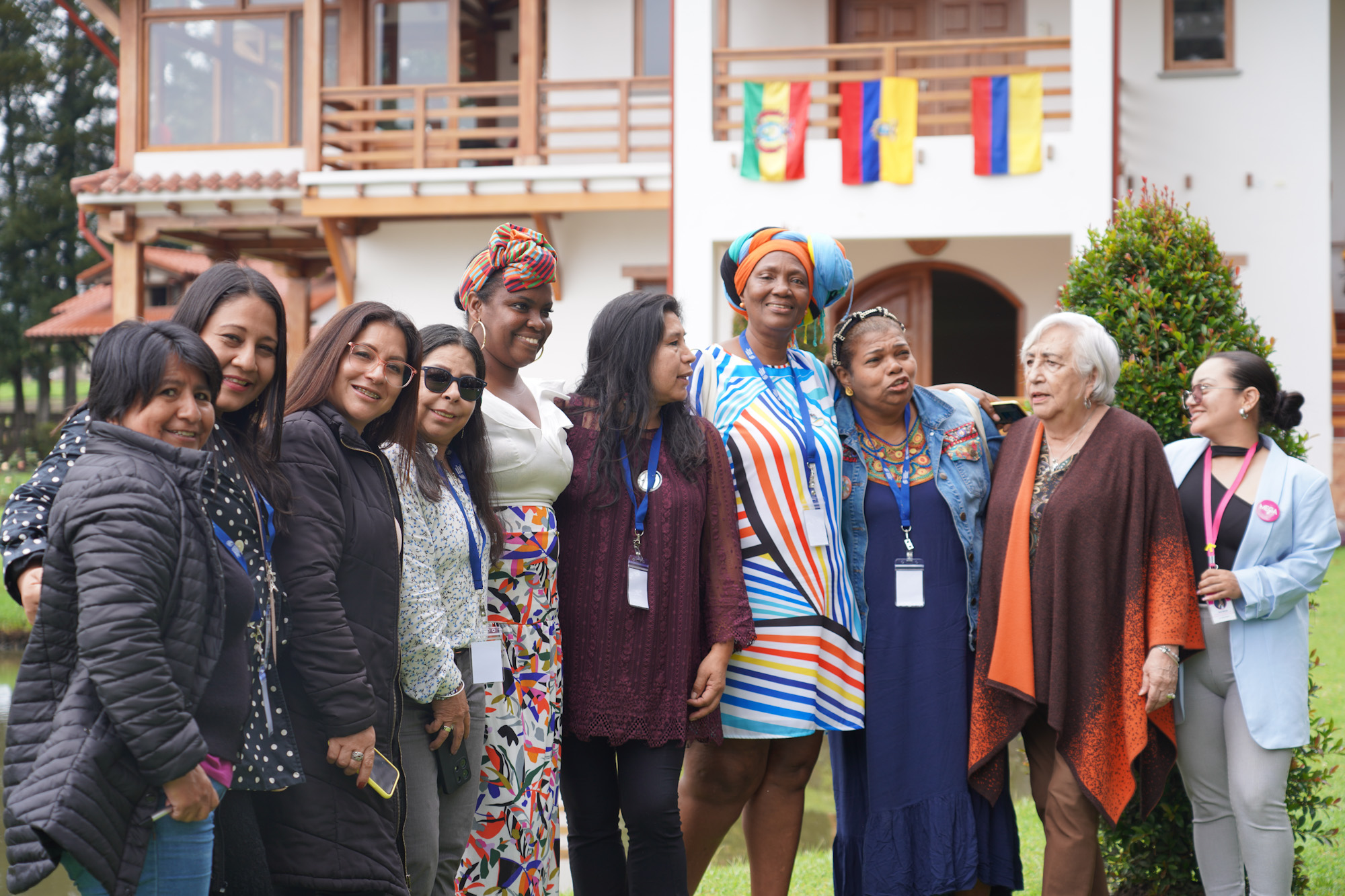In a Region in Crisis, Women Leaders are a Stabilizing Force

South American countries are facing crises on multiple fronts. Ecuador is experiencing spiraling insecurity, there is political paralysis in Bolivia and Peru, full on totalitarianism in Venezuela, and resurgent armed conflict in Colombia. Women carry the weight of these issues throughout their daily lives, facing inordinate and unique vulnerability to violence and shouldering disproportionate responsibility for their families and communities, all while minimized or excluded from key decision-making roles.
In recent years, women have made great progress in gaining power and influencing public policy, but there is a long way to go. While women make up an increasing percentage of legislatures, they face steep barriers to meaningfully participating in decision-making, especially at the local level. This is particularly pronounced in the vast swathes of rural territory where women are more marginalized. Women’s political participation is critical to resolving these crises; increasing their meaningful involvement and addressing violence against women in politics are two sides of the same coin.
The International Republican Institute (IRI) supports networks of women to take on these issues where they’re most salient. Through its programming with the Women’s Democracy Network (WDN), IRI’s programs in South America support women legislators, activists, and local organizations to confront violence and institutionalized machismo.
At the national level, IRI helps provide congresswomen with critical legislative skills including negotiation, parliamentary procedure, leadership and public speaking, and substantial experience on hard-hitting issues such as defense, security, and economic policy. To that end, IRI works to build congressional women’s caucuses and strengthen gender equality committees throughout the Andean countries. With IRI support, groups of women legislators in three countries have drafted and/or adopted nine legal instruments over the past year alone.
Women legislators face unending challenges while fulfilling their duties as elected officials. When in office, they continue to experience the harassment, bullying, threats, and violence on- and offline that they faced on the campaign trail, and are often relegated to “women’s issues” like education and family policy. Colombian Representative Jezmi Barraza was elected in 2018 as one of the youngest members in congress. During her first campaign Barraza wore red shoes, the color of her political party. She was ridiculed as “the girl with the red shoes” and detractors insinuated that she had been “placed” in office by powerful family members. IRI has supported Barraza’s work as an effective legislator and leading member of Colombian Congress’ Legal Committee for Women’s Equity (CLEM) to advance gender-responsive policy, including advocacy for women’s economic and labor rights, specifically those related to maternity. In 2022, embracing the “girl with the red shoes” label, Barraza was reelected with one of the highest vote shares in her home department of Atlántico.
Subnationally, IRI is helping rural women across South America to lead on finding solutions to cross-cutting issues of natural resource governance, marginalized groups’ rights, and gender-based violence. Following IRI partner-led dialogues, rural women leaders have created a women’s manifesto or roadmap to close policy gaps, drive accountability, and create transformative change. IRI advocacy partners will complement the roadmap’s launch with multi-media sensitization campaigns to build awareness of the issues and will bolster these efforts by offering GBV education, resources and referral services. And longstanding efforts, such as IRI’s work to establish and strengthen subnational women’s secretariats in Colombia, which has yielded more than 10 subnational peace and security policies, creates the institutional infrastructure that sustains momentum for change.
Against the backdrop of instability, IRI’s programs imbue active recognition of the role political violence against women plays in their lives. IRI actively employs survivor-centered, locally led approaches to identifying, mitigating, and addressing risk. IRI expert partners have created crisis mitigation plans for rural women political and civic leaders under threat, and indexed GBV support services within each country, available in multiple languages, including Spanish, Quechua, Wao Tededo, and Wayuunaiki. By partnering with the Colombian social innovation lab Movilizatorio, IRI has also equipped women social leaders with the skills to develop tailored security protocols and community-based early warning systems using both technology and analog measures.
In a region notorious for centralization, IRI is empowering women leaders outside their national capitals to build networks, channel demands for and ideas to strengthen gender-responsive governance, and build trust between rural women leaders and their legislative counterparts to collaborate on cross-cutting issues affecting rural women.
Top
